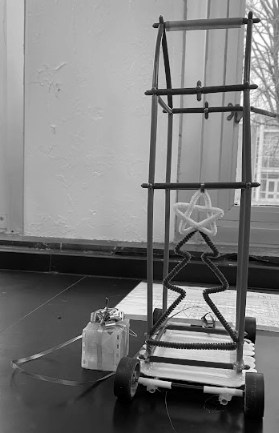Microplastic particles found in human blood; Unknown effects may exist over long term
April 26, 2022
Environmentalists have warned the world of the consequences of pollution and the mass amount of waste that humanity generates, but trash has recently traveled far beyond rivers and train cars– in human blood.
While older living beings having plastics in their blood is concerning, one of the larger concerns is that traces of dyed plastics were found in the placenta of an unborn baby, which the researchers said was “a matter of great concern”. Likely, it was Microplastics that mothers breathed in and consumed, and all examined particles were dyed vibrant colors meaning they came from packaged personal care products or makeup.
Researchers have concerns that microplastics being found in children will lead to adverse effects such as mutations, and will be “no longer composed only of human cells, but a mixture of biological and inorganic entities,”according to Antonio Ragusa, director of obstetrics and gynecology in Rome (theguardian). He uses the term “plastic cyborg children”. The speculation is on the extremist side, but there is no evidence to confirm nor deny the statement.
Animal science teacher Mr. Brady Green says this discovery “isn’t surprising,” considering the amount of plastic we accidentally consume. While he does not believe in the cyborg theory, he does note the sheer amount of plastic we consume without knowledge. “They say you should never use water bottles that have been in a hot car because it leeches the plastic into the water,” he says, “and the same goes for frozen bottles.”
The same plastics are being found in anonymously donated organs, as well as embedded deep in the lung tissue of about a dozen patients awaiting surgery (nbcnews). Plastics are now becoming a frequent material in human blood, and the consequences and long term effects are still unknown.
According to Green, “I think the best thing we could do is try to reduce the amount of plastic we use, and I just don’t think that is ever going to happen.” It is possible, however, there remain poor cities and countries in the world that have no access to proper garbage disposal. Most of their trash gets thrown into rivers where it is never seen again, except by the wildlife that live in the ocean, and then eventually by scientists under a microscope who find it in human tissue.
Green lists the simple ways to gradually reduce plastic waste without major life changes. Switching from water bottles to a thermos is a healthy solution for both the body and the earth. Water bottle packaging companies don’t keep bottles chilled, and whenever they get hot, the plastic melts, causing the consumption of plastic particles.
Buying food in bulk rather than individually packaged products helps as well, according to iberdrola.com, because it reduces both plastic packaging around food and nonbiodegradable waste that will only contribute to the massive garbage dumps around the world.











